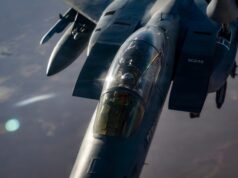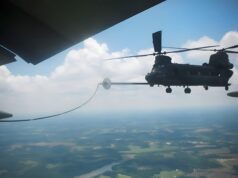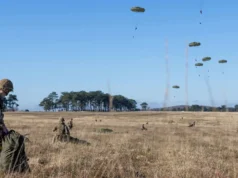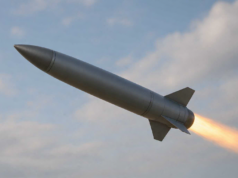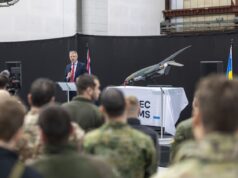Residents in the Syrian city of Manbij have been celebrating after being liberated from the rule of Islamic State.
The liberation of the town is a significant strategic victory.
On the 27th of June, while Royal Air Force Tornado GR4s conducted reconnaissance missions to gather intelligence on Daesh activity, Typhoon FGR4s and Reaper remotely piloted aircraft provided support to both Syrian democratic forces and Iraqi units. The same day, in Syria, a pair of Typhoons conducted a successful attack with Paveway IV guided bombs against an Islamic State point on the south-western outskirts of Manbij as local forces started to fight for the town.
Recently, a pair of Typhoon jets supported Syrian forces as they fought to secure Manbij. A number of buildings on the south-western edge of the town had been fortified by Islamic State as a major defensive position.
These were successfully struck by the Typhoon aircraft, using eight Paveway IV guided bombs.
Last week, two Typhoons defended local ground forces as they fought in the city and a Reaper drone intervened in close combat just north of the city, clearing two groups of Islamic State fighters on the ground.
In addition to those mentioned above there have been a large number of British strikes in the region, helping to liberate Manbij and other towns from Islamic State, as part of the UK’s ongoing efforts in the Middle East against Islamic State.
Operation Shader is the operational code name given to the British participation in the ongoing military intervention against the Islamic State.
The operation began in Iraq on the 26th of September 2014, following a formal request for assistance by the Iraqi government.
Prior to this, the Royal Air Force had been engaged in a humanitarian relief effort over Mount Sinjar, which involved multiple aid airdrops by transport aircraft and the airlifting of displaced refugees. By October 2014, the intervention had extended onto Syria with the Royal Air Force only mandated to conduct surveillance flights over the country.
In December 2015, the House of Commons approved British airstrikes against IS in Syria. The UK is one of several countries directly involved in the ongoing Syrian conflict that started in March 2011.
By June 2016, the Ministry of Defence had announced that over 1,000 personnel were engaged in theater and that the Royal Air Force had conducted around 900 airstrikes, flying over 2,200 sorties, killing almost 1,000 Islamic State fighters.


